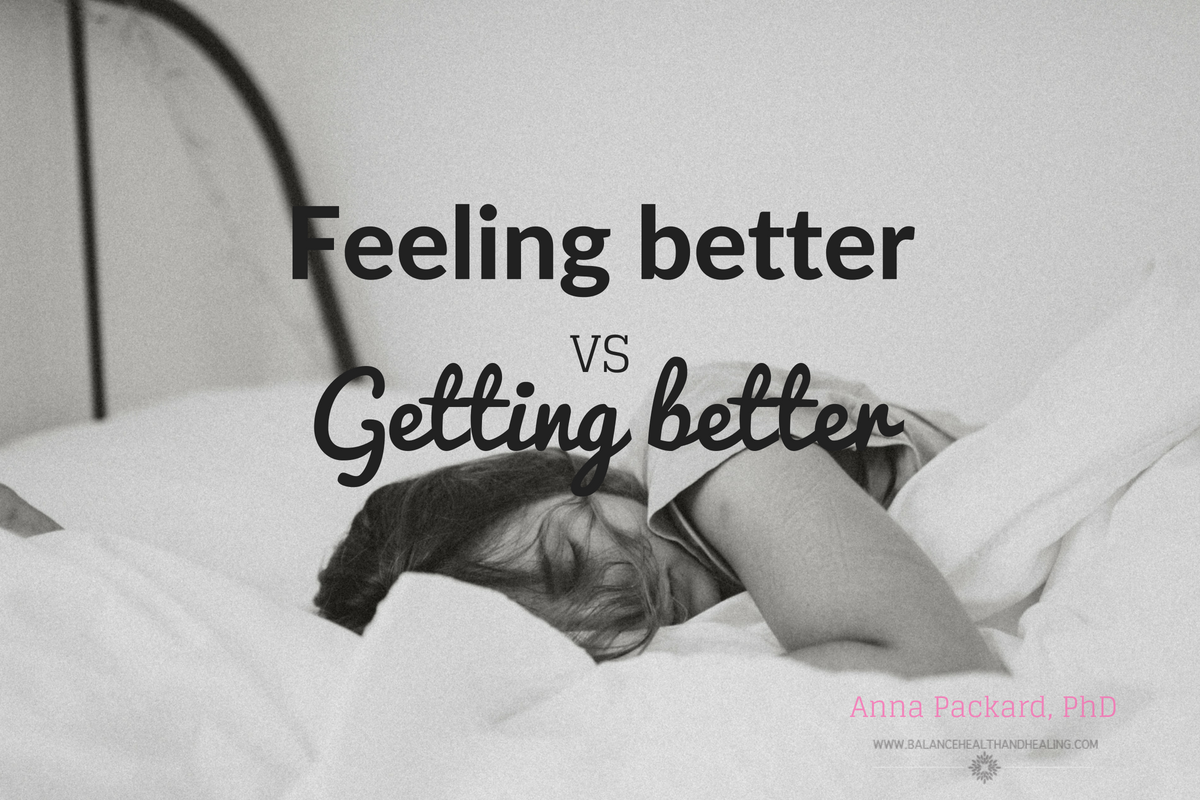People can smoke for decades and not experience a “smoker’s cough” as part of their habit, but then upon quitting smoking, they may suddenly develop a cough. This seems counterintuitive and at first glance, feels like they are getting sicker, not better! But the reality is the opposite. This sudden onset of a cough, is a symptom of their lungs beginning to heal. Cigarette smoke paralyzes and damages thousands of tiny hair-like projections in our lungs, called cilia. When a smoker stops smoking, cilia start to regenerate and begin to move the trapped toxins, up and out of the lungs, leading to a cough that can last weeks or months.
This is a helpful analogy applied to our psychological experiences as well. When we are in distress or pain, we want relief; we want to feel better. But just like the analogy above, sometimes getting better doesn’t feel better, at least initially. In fact, a lot of times, getting better requires facing things that have been shoved down for years, and the act of bringing them up and processing them is painful and difficult. Like cleaning out a closet, it looks and is, indeed messier, before it gets clean.
 Clients will sometimes ask me if it is worth it to bring up all the suppressed baggage when it causes so much discomfort or distress? I reassure them that I am not a sadist and wouldn’t invite them to do so unless it would ultimately facilitate their healing and relief.
Clients will sometimes ask me if it is worth it to bring up all the suppressed baggage when it causes so much discomfort or distress? I reassure them that I am not a sadist and wouldn’t invite them to do so unless it would ultimately facilitate their healing and relief.
At other times, clients will express frustration that they are struggling with something they thought they already moved through and past. This may be relationship struggles, or body image/self-esteem struggles, or maladaptive behaviors, or depression or anxiety or other psychological pain. I have heard more than one client express feeling they are “back at ground zero.” When I hear that phrase, I react pretty quickly to challenge that belief.
Not only do I feel it is psychologically hurtful to tell oneself they are “back at ground zero,” I also believe it is blatantly untrue. We may experience similar pain again in our lives, but that resurgence of symptoms does not minimize the journey we have taken in the meantime! It does not minimize or change the work, insights, and progress we made. Life has a way of presenting us with more opportunities to grow and learn, and sometimes those lessons feel they come in packages we’ve already opened.
In Love warrior: A memoir, Glennon Doyle Melton draws the parallel of facing familiar pain to a spiral staircase. “My spiral staircase of progress means that my pain will be both behind me and in front of me, every damn day. I’ll never be ‘over it,’ but I vow to be stronger each time I face it. Maybe the pain won’t change, but I will. I keep climbing.” (p. 195).
I love this imagery because it resonates deeply with me. Progress is an uphill climb that is hard, in of itself. A spiral staircase is perfect because we can round corners to find ourselves faced, again, with old demons or pain. However, we continue to move upward on our journeys. We are the ones who change, not the circumstances.
People come to therapy hoping for relief and we celebrate together when they experience that yearned for relief. But I tell clients that it is an unrealistic therapy goal to never feel sad, hurt, frustrated, angry, or upset again in their lives. If that is the outcome, they are either incredible at avoiding emotions, or not living their lives in any meaningful way.
Life asks for vulnerability and with vulnerability with come both pain and reward. As we move up our spiral staircases, we build strength, character, and insight. We also collect valuable friendships and memories along the way.
So even though getting better and feeling better don’t always directly coincide on the timeline we wish, there is hope. You will eventually feel better, and even more gratifying, you will be stronger.

